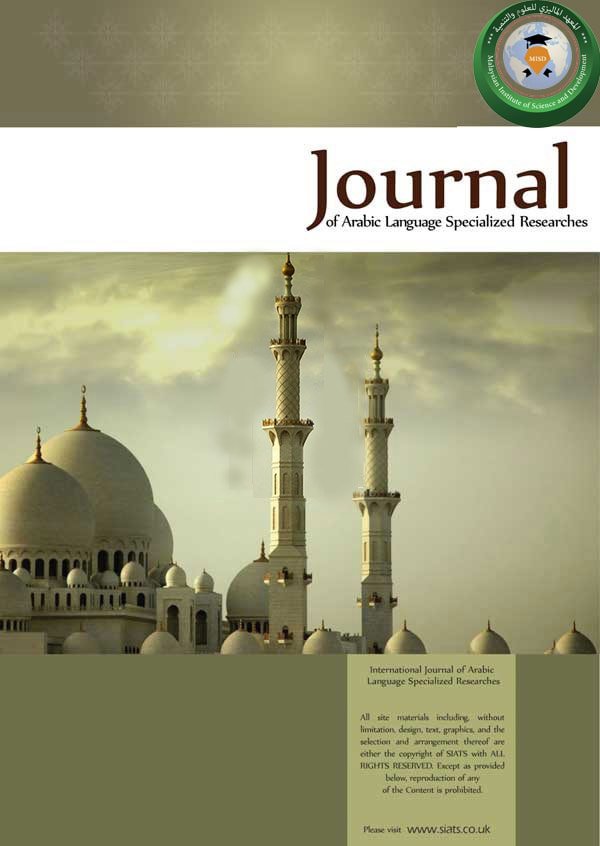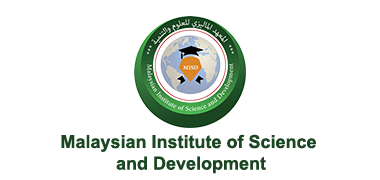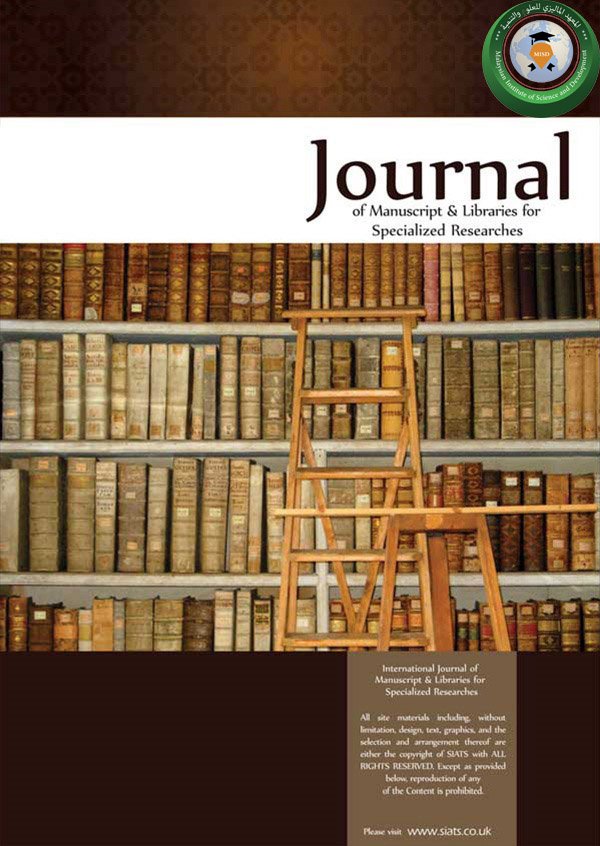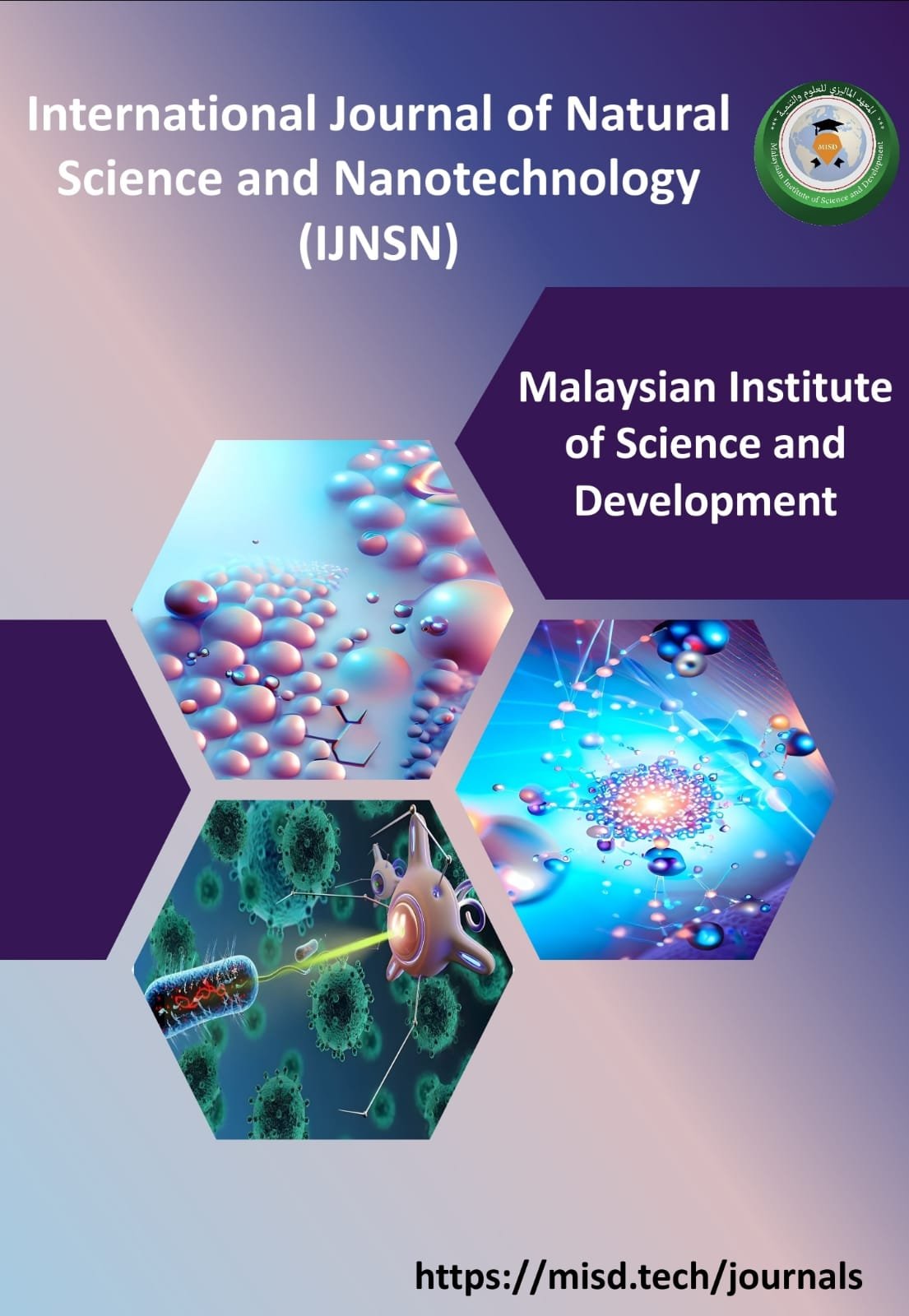- LATEST
-
- the effect of environment on the loan words phenomenon in the arabic language
- abbas mahmoud al-akkad: his life and contribution to literature and the novel (july 28, 1889 ad - march 13, 1964 ad)
- the effect of bilingualism on cultural identity from the jordanian colloquial dialect and the colloquial dialect of saudi arabia
- the connotation of the lexical unit between the levels of terminology and usage
- the concept of service in the authentic arabic linguistics; the logic science as a model
- intertextuality in the diwan of ‘equestrian’ by al-majati
- the effect of readings on changing the meaning of surat yusuf as a model
- teaching arabic abroad - difficulties and challenges - italy and america as models
- the qur’anic text and language skills acquired in the light of the kindergarten program in algeria kindergarten children's paradise, creativity in ouargla as a model analytical field study
- digital quranic education and its impact on teaching the arabic language “ayat” and “golden qur’an” program as models
- the aesthetics of arabic calligraphy and its role in teaching arabic: an analytical study
- the role of the arabic language in controlling linguistic performance in the digital age: linguistic correction in (twitter) as a model
- strategies for developing the skills of teaching arabic to native speakers
- artistic technical construction in the dichotomies of contrasting umayyad poetry
- the arabic language between the past and the present: reality, duty and goal
- the significance of grammatical rules and their effect on legal rulings )the exception is only a model(
- safeguarding the arabic language in the digital space in light of contemporary stakes and challenges
- the role of al-jinas and its music in showing the tonal features of the arabic language
- arabic grammar and its role in quranic interpretation
- digital libraries and their role in teaching and learning the arabic language for non-native speakers
- the challenges of teaching arabic to non-native speakers
- reading text, producer and self-reading interactivity
- the courage of the arabic language in the chapter of the adjective semantic grammatical study
- teaching arabic language strategies for preserving the arab identity and globalization challenges
- designing an arabic language curriculum based on the arabic for academic purposes (aap) approach to develop the academic writing and critical thinking skills of qatar university college of law students
- using voice onset time in the acoustic analysis studies to investigate the arabic stop sounds
- enhancing the role of arabic language experts in spreading it andcountering its attempt to marginalize countering its attempt to marginalize it
- study of international student’s needs at al-azhar university to learn arabic for specific medical purposes
- forms of topic change in andalusian poetry: a critical analytic reading of selected verses
- the behavioral and cognitive theory in language acquisition: a comparative study
- linguistic academies efforts and achievements
- towards the text - an applied study on the poem "flowers
- the implications of self growth on child language
- analysis of applied language errors
- the efforts of the old in the rooting of the arabic language: an analytical and analytical study
- the concept of nodding when fundamentalists
- the absolute effect of its sections and its importance in grammatical study
- criticism of opinions on the status of arabic grammar among arabs
- the role of the objectionable sentence in its violation of grammatical rules in surati: al imran and women
- the role of the objectionable sentence in its violation of grammatical rules in surati: al imran and womenthe language of the arab child and the intellectual struggle between cultural identity and linguistic identity
- criticism of opinions on the status of arabic grammar among arabsalmafeul almutlaq 'aqsamuh wa'ahamiyatuh fi aldirasat alnahwia
- dilalat alnaet fi kitab al'adab almufrad lil'iimam albakharii
- objection by the grammarians "causes and effects"
- the experience of teaching arabic to non-speakers at the national university of jinji in taiwan reality and challenge
- arabic grammar in nigeria: evolution and development
- response to the development of grammatical rules of the prophet's hadith in the book "evidence of clarification and correction of the problems of the right mosque of the son of malik"
- the concept of grammar and its terminology in the ancients
- alsilsilt alkalamyt byn allsanyat alearabiat wallsanyat algharbiat muqarabatan tatbiqia
- the balfour declaration in palestinian poetry
- allahjat alhijaziat fi daw' al'amthal alshaebia "draasat laghawia"
- the paradox in the "village village" of mohamed nile obaidat
- almutun aleilmiat wamaealimuha alnazariat nasha'atha - eawamil zuhuriha - mazahir alqabul w alrafd
- alkht alerby bayn mhddidat alfana' wmqwwmat albaqa' - drast wsfyt limadih alghabir wahadirah almueasir
- almasdar almutasayid waikhtilafuh ean almusdarin alsarih walmuawal
- alaietiradat alsarfiat eind alzijaj ealaa maeribi alquran fi kitabah " maeani alquran wa'iierabuh "
- the future of the arabic language and its role in the process of civilization development
- design an educational program based on participatory learning via the social media network and measure its impact to improve the writing skill of malaysian students who speak non-arabic
- psychological problems for muslim youth and psychological counseling methods presented in the light of the qur’an and sunnah
- the linguistic differences between the memorization of the torah and the bible, and the memorization of sunnah.
- human development in our heritage - andalusian literature as a model-
- malay vocabulary borrowed from the arabic language, its origins - its characteristics - its development
- almuearab waldakhil fi alquran alkarim
- the significance and its development in al-khafaji's retinue on the interpretation of the al-ovalawi is an inductive study
- hadhf alwaw fi alrasm alquranii
- the influence of the malay national language on multilingualism in malaysia an analytical descriptive study
- the story of sheikh ali tantawi descriptive and analytical study
- a short sentence in the interpretation of words needed by the translator
- the deliberative dimension in the news discourse
- the standard arabic language and the dialects of other speakers
- requirements for the preparation of the course book in teaching arabic to the adult student as a second language in malaysia: descriptive study
- the position of the cultural heritage of the europeans in the teaching of arabic as a foreign language: a night study
- the difference between the qur'anic readings of a word and meaning
- renewal touches in the book of the two industries
- the method in the poem gharar gorgeous in the appeal of the good wilderness of sheikh abi bakr atiq senk tijani
- develop and evaluate the program of the grammar checker in the translation skills of the book
- poetry image and rhythm
- abnormal readings and attitudes towards muslims: an analytical qur'anic study by associate professor dr. salaha yaqoub
- significance of the morphological structure in al-jinn
- application of the question according to obstetric linguistics
- grammar in terms of terms and meanings
- the chaos of terminology in the theory of text science of limit on output
- the qur'anic precedence in determining the relationship between the heart and mind and directing personality and behavior
- rain between the exclusive of the tanzanian systems and the most modern science
- analtics and the quranic vision to be applied to the management, evaluation and development of islamic university studies
- the rhetorical references and their implications in the koran
- development and evaluation of a morphological auditor program for teaching writing skills among students specialized in the arabic language
- poetry as a picture and rhythm
- the difference between quranic recitations, both verbal and meaningful
- al'uslub fi qasidat algharar albahiat fi aistietaf khayr albariat n lilshaykh 'abi bikr eatiq sink altajani
- renewal touches in the book of the two industries
- from the rhetoric of verbal formation in the qur'anic discourse, an analytical study
- obstacles to learning the arabic alphabet for non - arabic speakers
- a vision for the preparation of the arabic book of worship for adult adults: a theoretical study
- the semantic function of synthetic syntheses of the nominal sentence - al-qudsi al-qudsi as a model
- kufyun and optics: a methodology for measurement and hearing issues: an analytical qur'anic study

Journal of Arabic Language Specialized Research
About the Journal :
Journal of Arabic Language for Specialized Research is published quarterly by the Malaysian Institute of Science and Development , it is devoted to the publishing of researches concerning sciences and arts of Arabic language such as Grammar, rhetoric, metrics, prose and poetry, phonetics, modern linguistics, dialects, Arabic calligraphy, Arabization, and literary critical stylistic studies.
The journal is a research platform for scholars, teachers, and students to enrich the Arabic Library with further sound researches and precise studies for the purpose of unveiling the secrets of this language which is regarded as a miracle on its own through the Quranic text that remains a great challenge to all languages’ texts. However, the research efforts made on Arabic language and its relevant sciences as well as the unveiling of its beauty in the past and present are merely attempts to reveal the secret of its essence to persuade linguists and litterateurs of the reasons why Allah, the creator of all languages, has chosen Arabic to be the last language for his messenger Mohamed (Peace and Blessings Be Upon Him) and his miraculous immortal book till doomsday.
THE ROLE OF THE ARABIC LANGUAGE IN CONTROLLING LINGUISTIC PERFORMANCE IN THE DIGITAL AGE: LINGUISTIC CORRECTION IN (TWITTER) AS A MODEL
summary:
The linguistic performance suffers from linguistically polluted aspects as it is characterized by weakness, thinness and linguistic permissiveness, despite the fact that the Arabic language, with its characteristics and advantages, is able to keep pace with the revolution and informatics; However, the tendency of the younger generation and the leniency of specialists towards extraneous linguistic uses, and the lack of linguistic control; Contributed to the expansion and spread of these manifestations, and the problem of the study centered on the following question: What is the role of the Arabic language in controlling the language in the digital age? The study in the descriptive graph, which is the approach to performance, followed the performance of the roles played by the linguistic correction accounts in Twitter in order to adjust the linguistic performance. The study reached a number of results, the most important of which are: The influential role of the Arabic language in controlling linguistic performance in the age and represented.
Keywords: linguistic tuning, linguistic correction, linguistic performance, the digital age.







 العربية
العربية